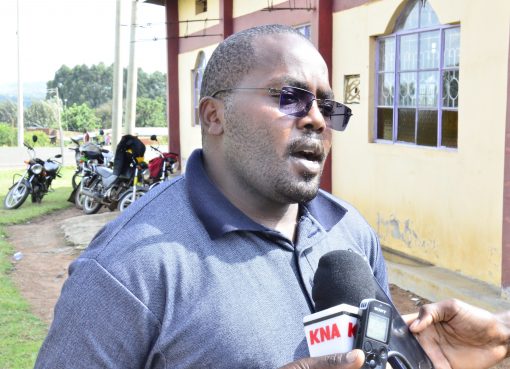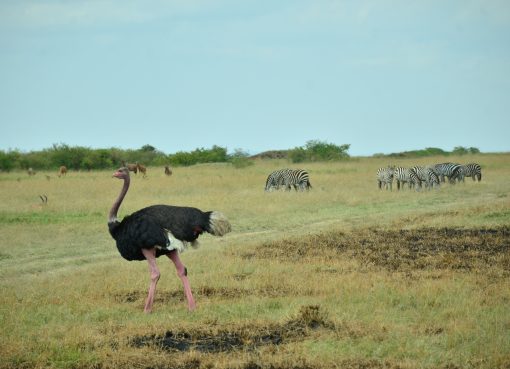The International Crops Research Institute for the Semi-Arid Tropics (ICRISAT) has introduced new farming technologies geared towards promoting smallholder famers in Semi-Arid areas to be more resilient.
Among the smart farming technologies introduced include conservation agriculture, mulching, minimum soil disturbance and zai pits and using certified seed besides planting as per advisories from the government.
The Revelations were made by ICRISAT Senior Plant Breeder for sorghum and millet Dr. Henry Ojulong during a show casing of the technologies in farmers’ farms in Ngukuni Village in Makindu Subcounty yesterday.
“We are show casing technologies which are good for dryland areas especially taking in mind the climate change which is coming,” said Dr. Ojulong, while taking journalists in some farmers’ farms in Makindu.
“The farmer works with Accelerating the Impacts of CGIAR Climate Research for Africa (AICCRA) to provide access and enable use of enhanced climate information services and validated technologies and practices for climate -smart agriculture which make farmers more resilient,” he added.
The Plant Breeder further said that the technologies they have introduced, conserve water, while saying that they are committed to elevating crop productivity, resilience and sustainability essential to dryland communities for their prosperity.
Besides providing certified seeds, Dr. Ojulong also disclosed that his organization has introduced drought resistant and tolerant crops that take a short period to mature hence making farmers to plant during minimal rainfall.
Some of the seed introduced that are drought resistant include that of crops like sorghum, finger millet, pearl millet and green grams among others.
“One of the attributes of the varieties is that they take a short duration to mature with minimum rainfall. Take 2 to 3 months to mature and have high yields. This can help farmers to escape the negative impacts of drought,” Ojulong posed.
He also said that it is good practice for farmers to do intercropping, besides having crop rotation to maximize yields from the farms.
Ojulong said that the crops have high nutrients which is good for our bodies.
A farmer, Fibi Mwangangi said that since she started using the technologies, farm yields have increased unlike before when she harvested very little, especially during depressed rainfall period.
“When we had challenges of drought, yields dropped drastically. In an acre of maize, I would harvest one or two debes.
But when I changed farming technologies and planted pigeon peas, green grams, sorghum and finger millet, yields have increased greatly,” said Mwangangi at her farm in Ngukuni Village.
“From one acre of sorghum, I harvest 8 bags in using new technologies or innovations of conserving water,” she posed.
At the same time, Mwangangi revealed that they apply very little fertilizer, while saying they have received good training through agricultural extension officers, besides getting advisories from meteorological officers when it is the right time to plant.
“We have been educated on how to prepare the land, the right certified seed to plant and when to plant,” she said.
“You don’t plant because you see it is good to plant. But we get advisories from officers at the department of Metrological in the County,” the farmer added.
Further, Mwangangi noted there are many benefits that they have saying there is enough food for the family noting that farming is a business like another, as they have ready market for their farm produce.
Mwangangi is leading five Women Groups, who are farming using the new technologies, which has seen them add value to their crops.
While urging more women and youth to do farming, she disclosed that they can make cakes from sorghum and millet, which has helped them generate an income.
By Patrick Nyakundi





